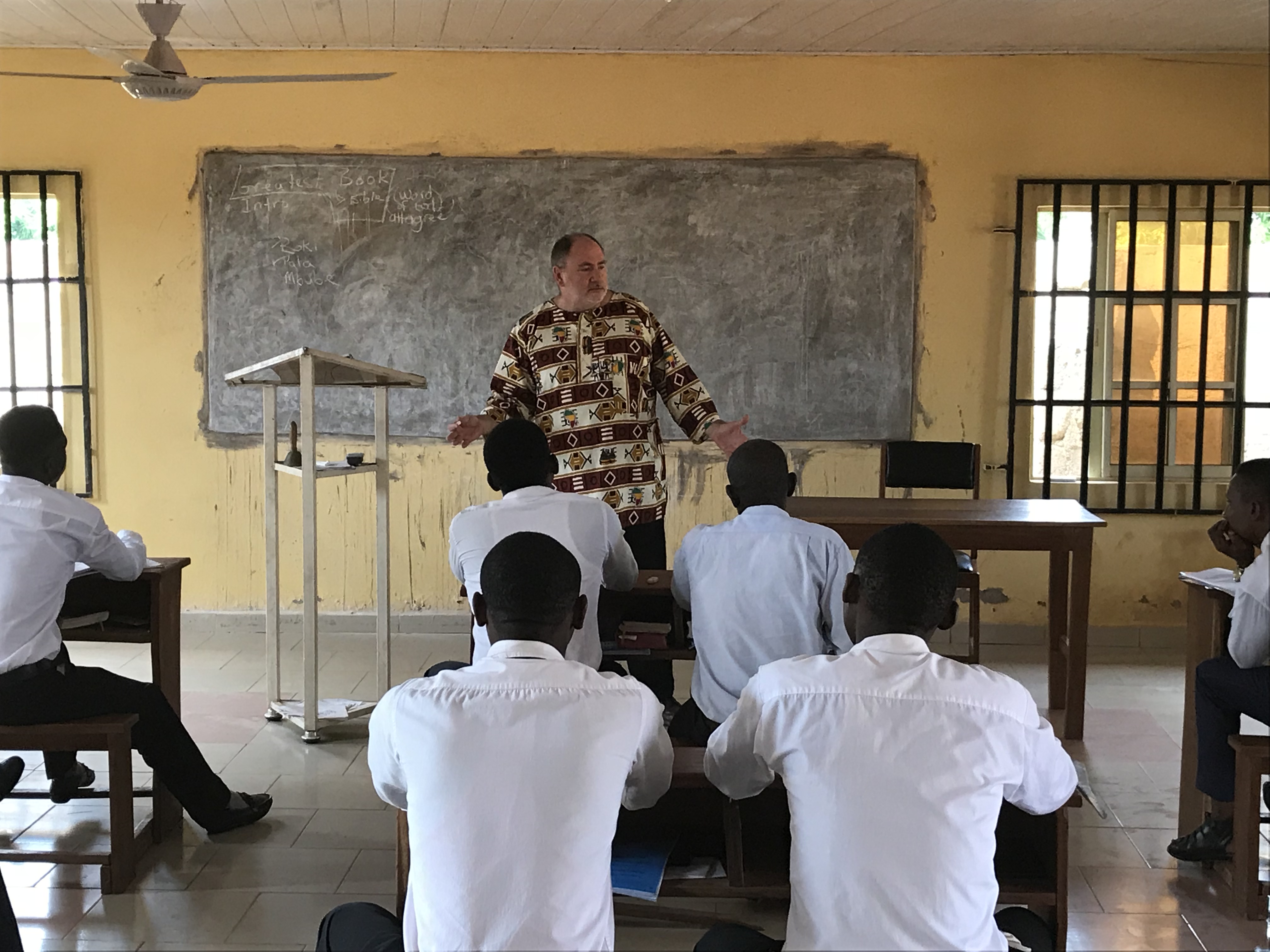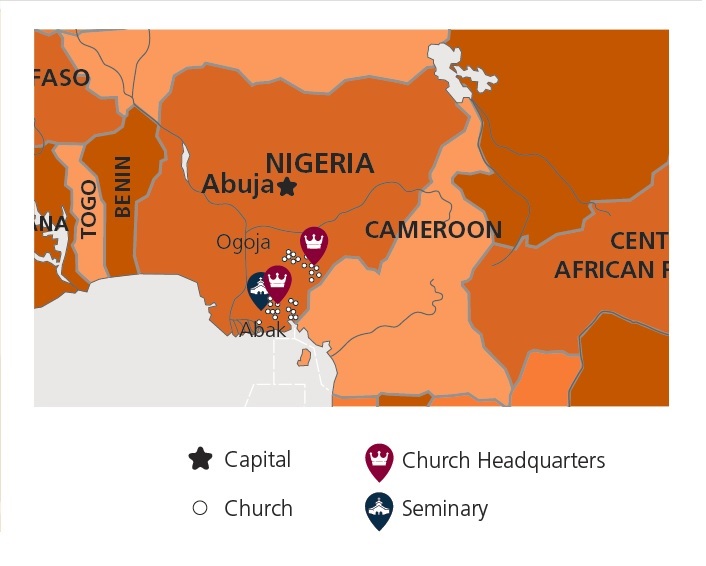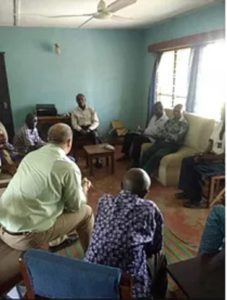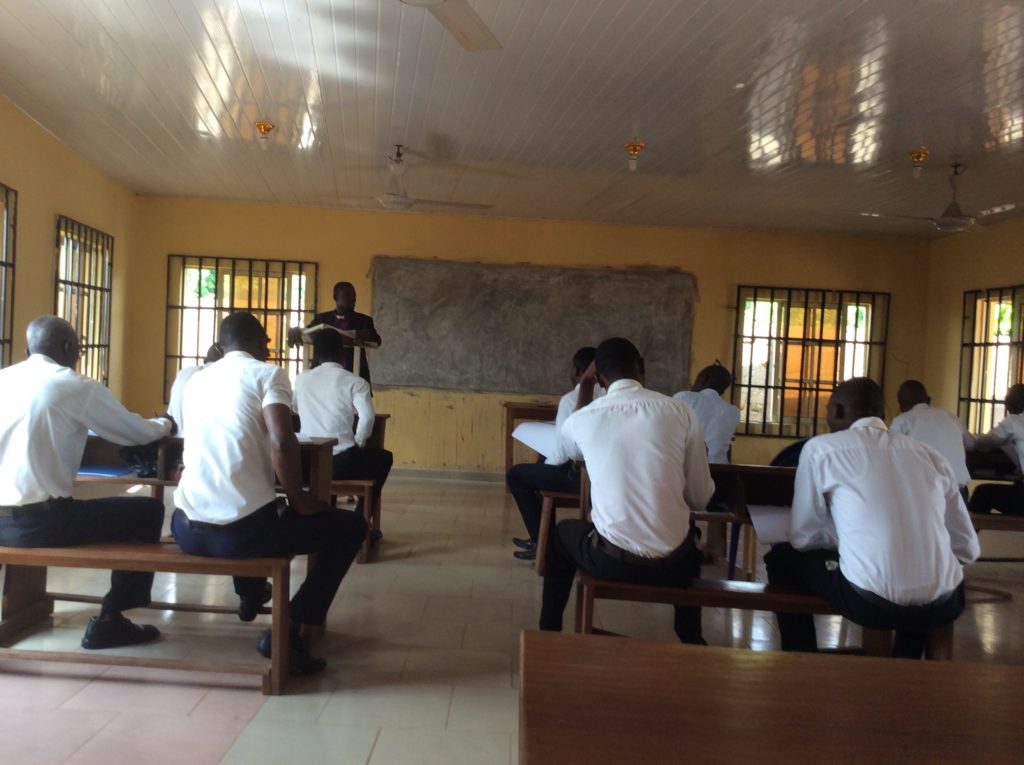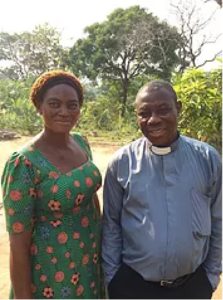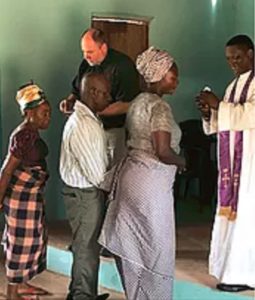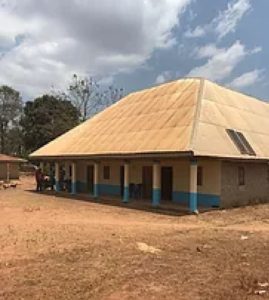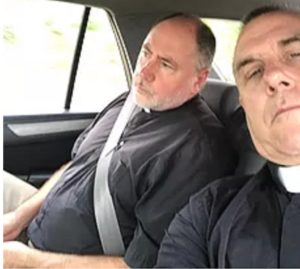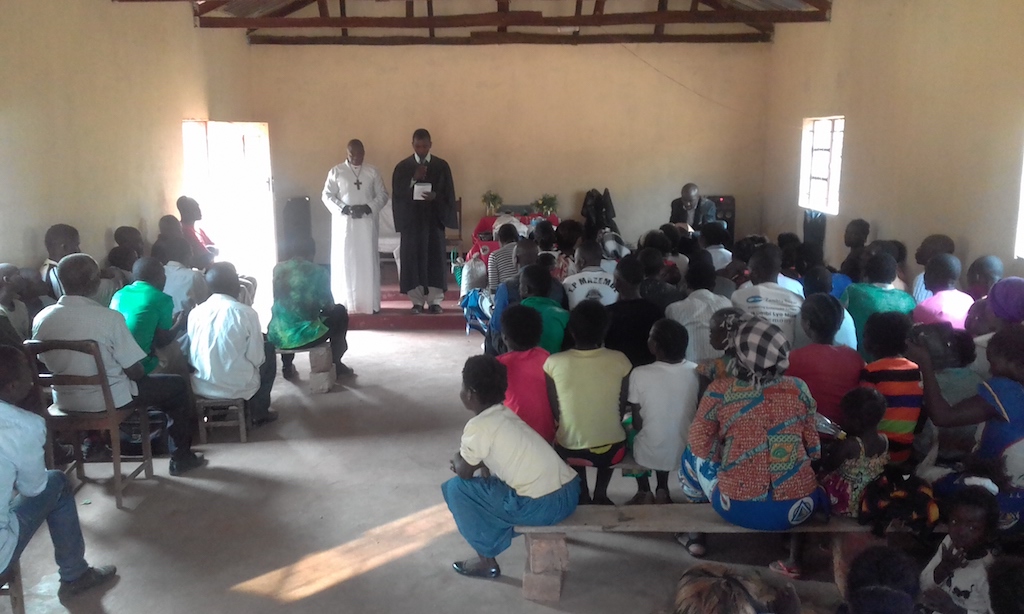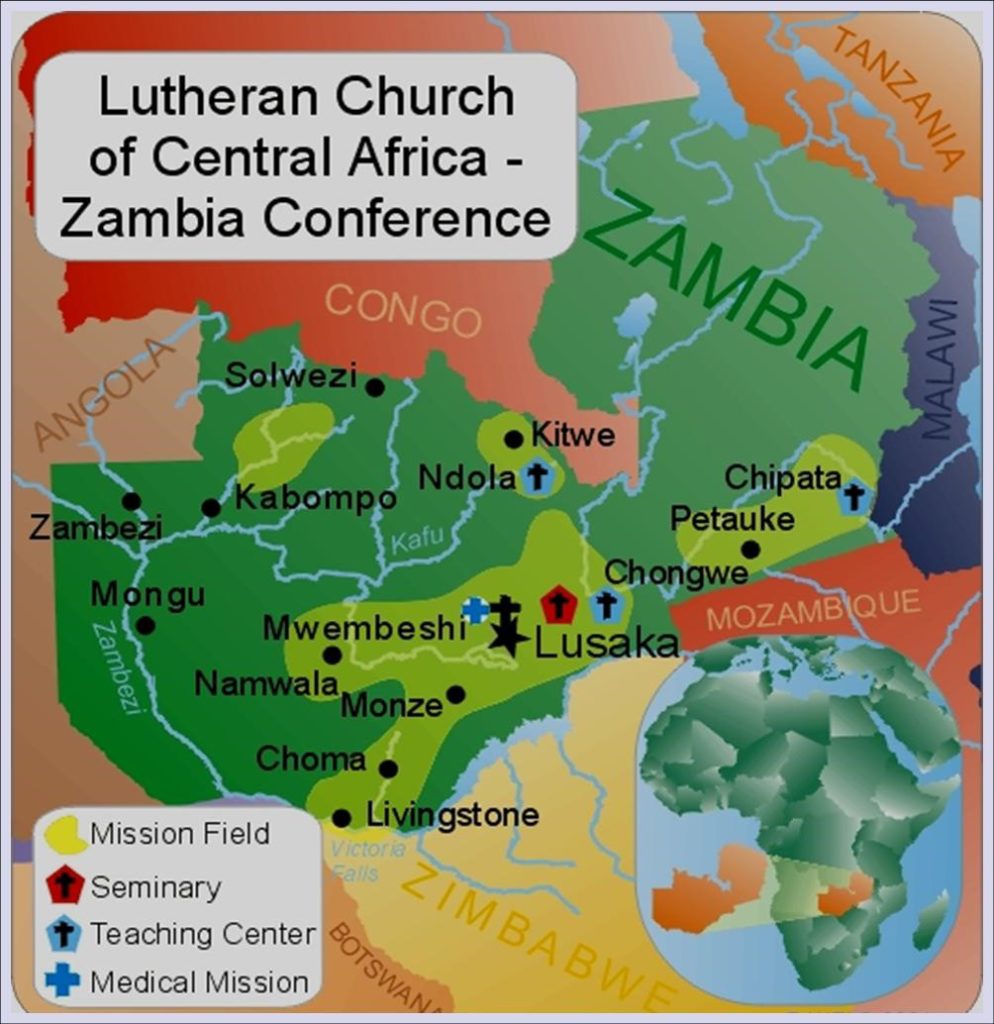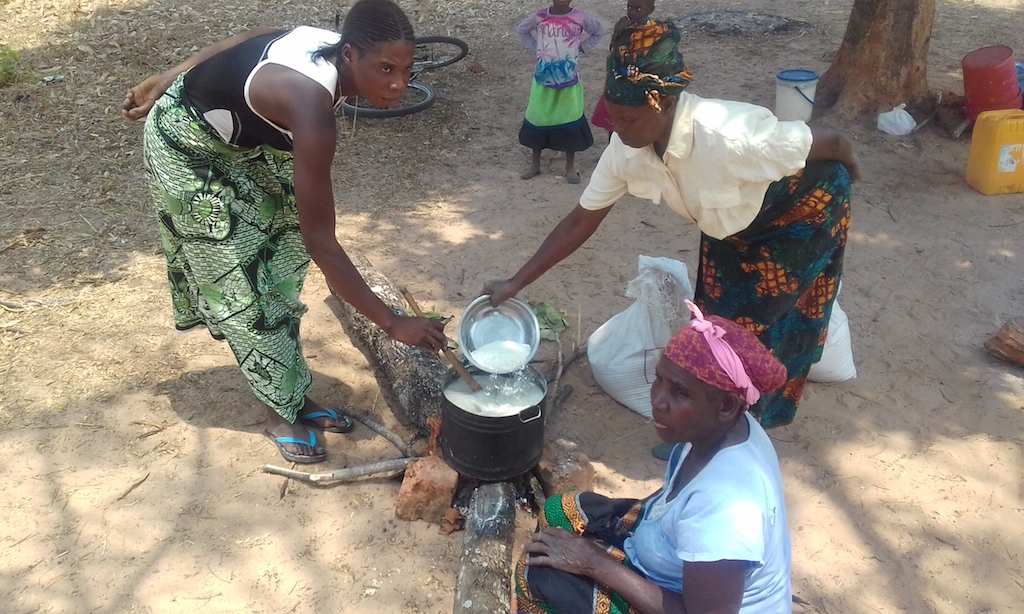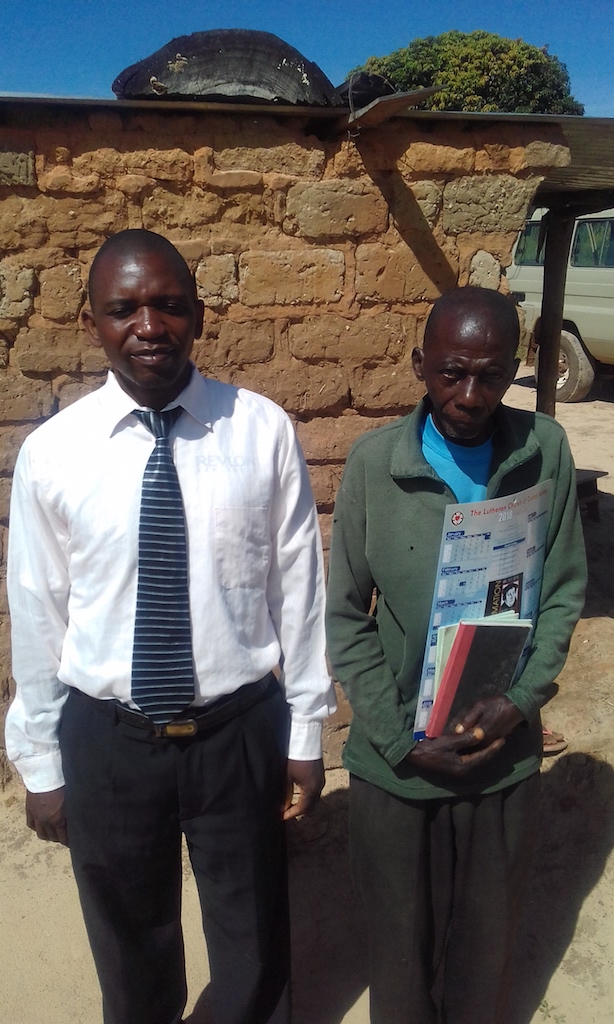All Glory, Laud and Honor!
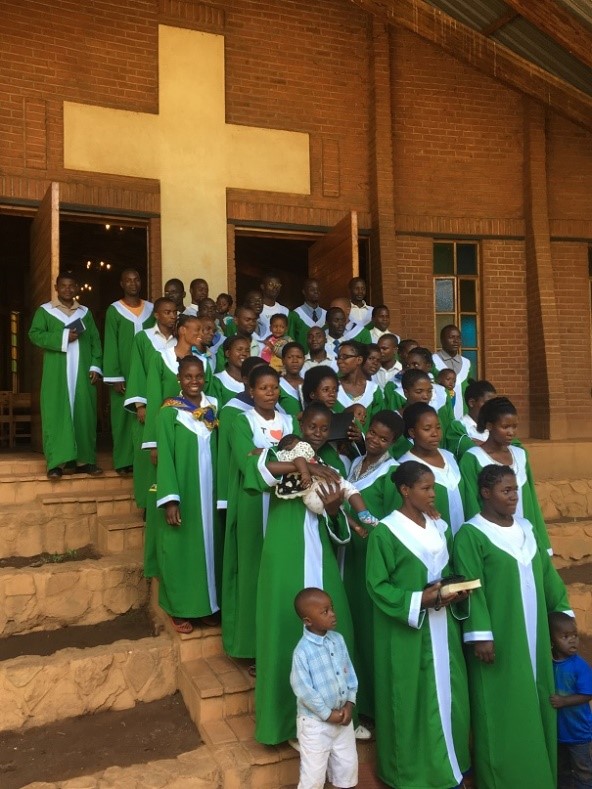
No one had to tell the crowd to be exuberant with praise. They just were. (Luke 19:37-38)
No one had to convince the people to shout. They just did. (John 12:13)
No one had to force them to make a welcome carpet out of their clothes. They just had to. (Luke 19:36)
You can no more prevent a song gushing up from the depths of a heart than you can stop Old Faithful from erupting from the deep of the earth.
It just comes up and sprays out.
Did the Palm Sunday throng fully “get” what was happening when Jesus traveled to Jerusalem on the back of a donkey? Were they understanding the real reason for His entrance into their city? Or the deeper meaning of their cries of Hosanna? (Matthew 21:9) Hardly.
But the 38 choir members at the Lutheran Bible Institute do. They know what Palm Sunday is all about. And it’s not about palms.
It’s about Jesus, the humble King. It’s about the Christ coming to Jerusalem to fulfill His Father’s will. It’s about the Suffering Servant, the Lamb of God, the Ultimate Sacrifice for sin. No one was taking Jesus’ life from Him, He was willingly and obediently giving it up.
Ride on, ride on in majesty!
No one has to tell the nineteen men and their wives to be enthusiastic to worship with song.
They just are.
Sopranos, Altos, Tenors and Basses all coming together in a chorus of harmony and a symphony of sound. These Lutheran Bible Institute (LBI) families have every reason to sing as they do because they know what happened, not only to Jesus but to themselves:
Baptized into Jesus’ name.
Redeemed by Christ’s blood.
Saved by grace through faith.

Their voices are Yellowstone geysers.
That’s why I apologize for the pictures. You are merely seeing what I prefer you would be hearing. The photos just don’t do justice to the experience itself. It’s like passing in front of you a dinner plate heaped with a tantalizing meal but not allowing you to taste the flavors nor smell the aroma.
I’m sorry. This article should be audio.
I wish I could have given, not your eyes but your ears a chance to be the pathway to walk alongside Jesus as He rides into Jerusalem with the crowds shouting and singing and praising. Christ-centered psalms, hymns and spiritual songs are tour guides for the heart. They know the way and escort us up close to the main attraction: the Fountain of Life. (Psalm 36:9) Stand under the spray and feel the mist.

The medium is the music but the message is the Messiah! Not only does it have the power to move us but has the ability to stir within us and from us our own gush of praise.
A hymn we can’t help but sing out…
From a voice we can’t help but lift up…
With a gratitude we can’t help but express forth!
And out it comes.
All Glory, Laud and Honor!
Walking by faith the Jerusalem road we see Jesus for who He really is (the Savior from sin) and for whom He really came (the entire world!) We realize that the song of salvation, composed by Christ with His life and death and resurrection, was already welled deep within.
On Palm Sunday, out it came. (Just imagine what’s going to happen on Easter Sunday!)
No one cut down branches or waved palms at Crown of Life on the 25th of March 2018. No one spread their cloaks on the road. But all the LBI choir members did wear brand new ones. The tailoring was finished just a week or so ago. The sewing machine is still warm from use. The 25th of March 2018 was the first time the choir wore the crisp new robes.
Palm-branch green.
The color was stunning but not near as much as the singing.
Instruments? None.
Pitch pipe? No need.
Sheet music? Not that either.
Just a God-gifted, “pitch perfect” choir with exquisite harmony singing praises to God.
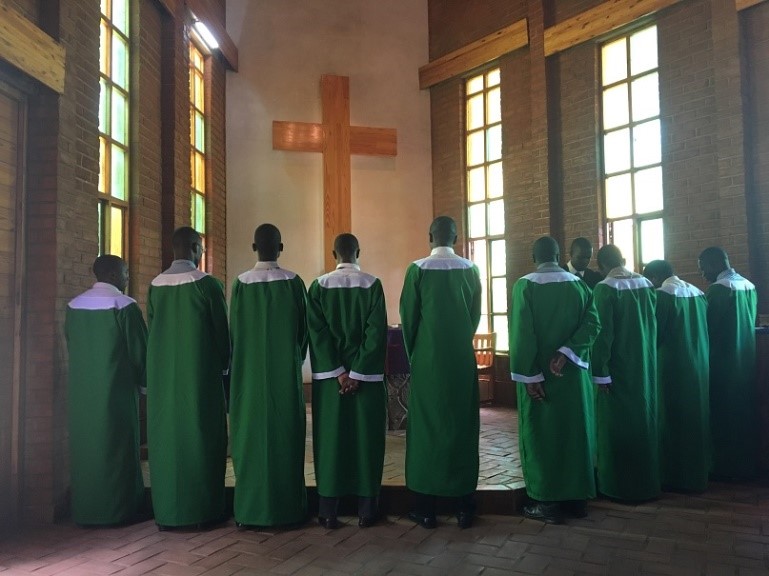
But the LBI choir members were not the only ones raising their voices in song on Palm Sunday. So did the children, the women’s choir as well as the congregation itself. Though one of the hymns we sang on Palm Sunday is actually found in the Advent section of Christian Worship, the words are most fitting:
The advent of our King
Our prayers must now employ,
And we must hymns of welcome sing
In strains of holy joy.
The everlasting Son
Incarnate deigns to be,
Himself a servant’s form puts on
To set his servants free.
(CW 1:1-2)
Lord Jesus, Redeemer King, to whom the lips of children made sweet hosannas sing (CW 131), please accept our hymns and our hosannas as our worship to You. Not just on Palm Sunday but every day! Even if we keep quiet, somehow in some way, as you said on that first Palm Sunday, the stones will cry out (Luke 19:40).
All Glory, Laud and Honor!
With Palm Sunday joy,
Missionary John Holtz
Your Malawi Mission Partner
John Holtz and his wife live in Lilongwe, Malawi
Please pray for those working in fields that are ripe for harvest. Share their story, engage with future news and receive updates. Go to this link to learn more about our mission fields in Africa and how the Holy Spirit is working faith in people’s hearts https://wels.net/serving-others/missions/africa
